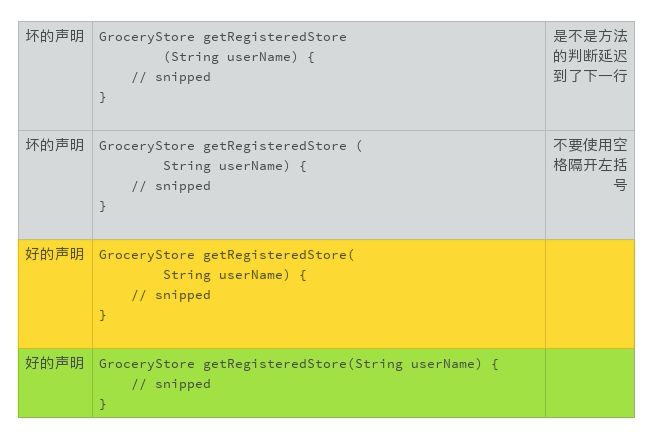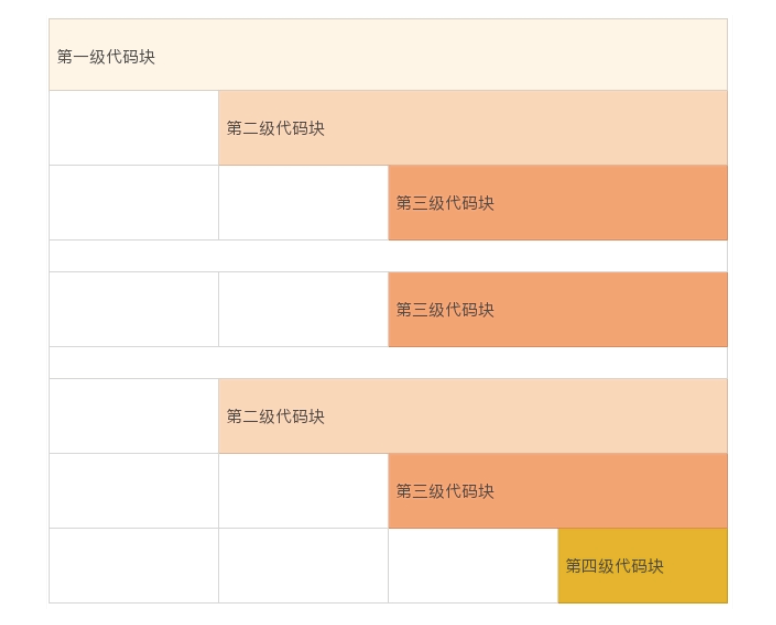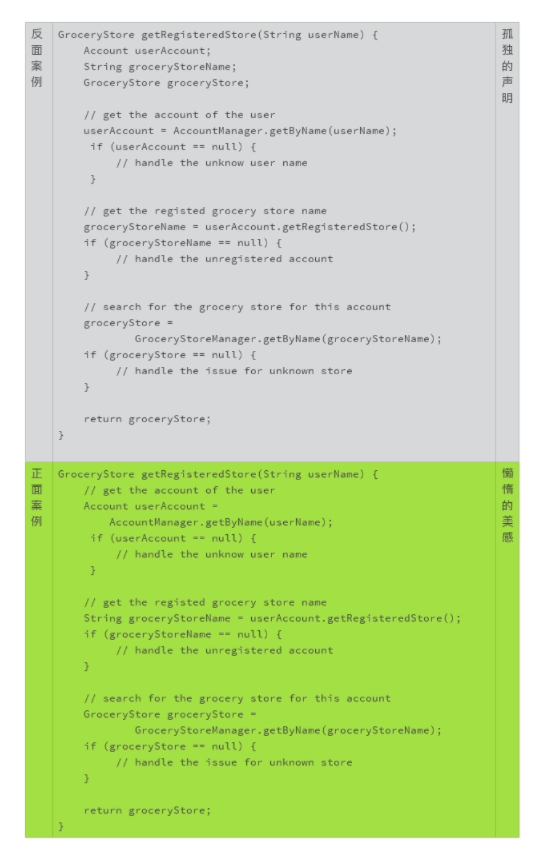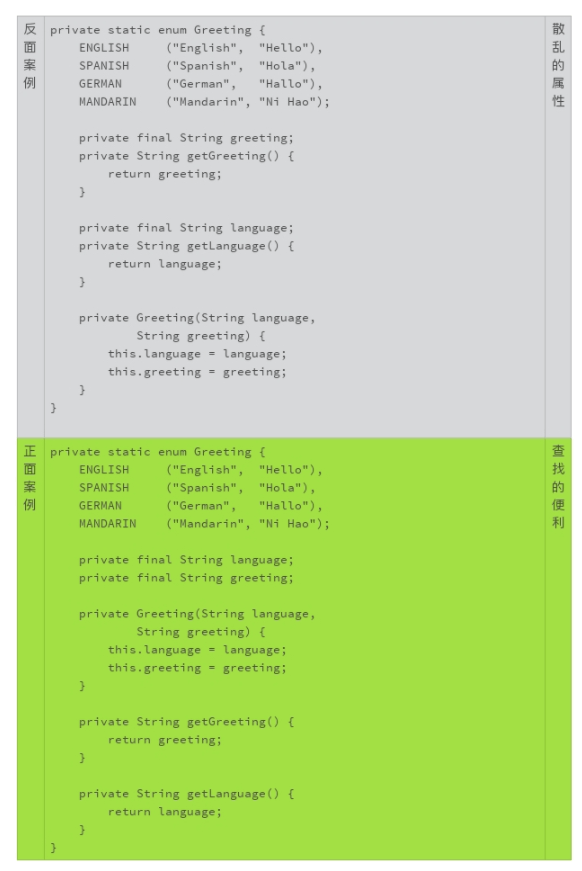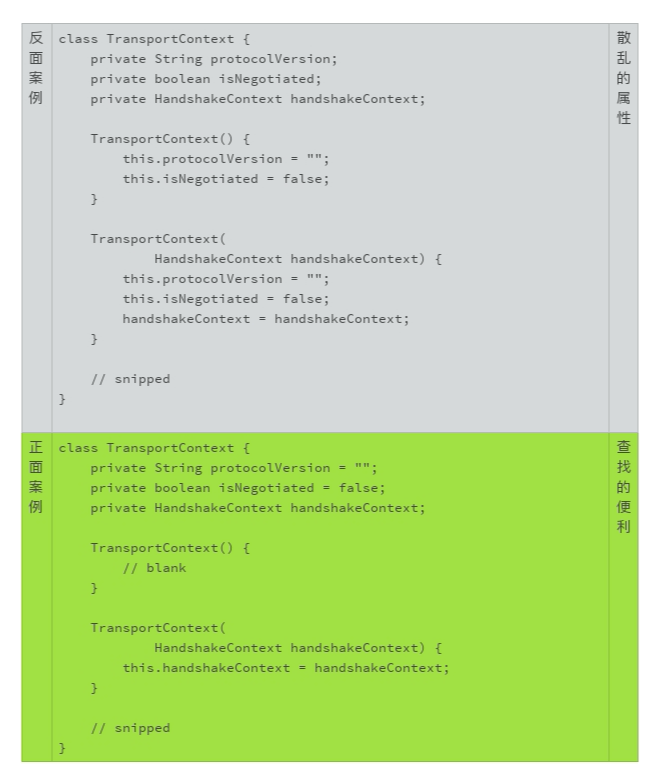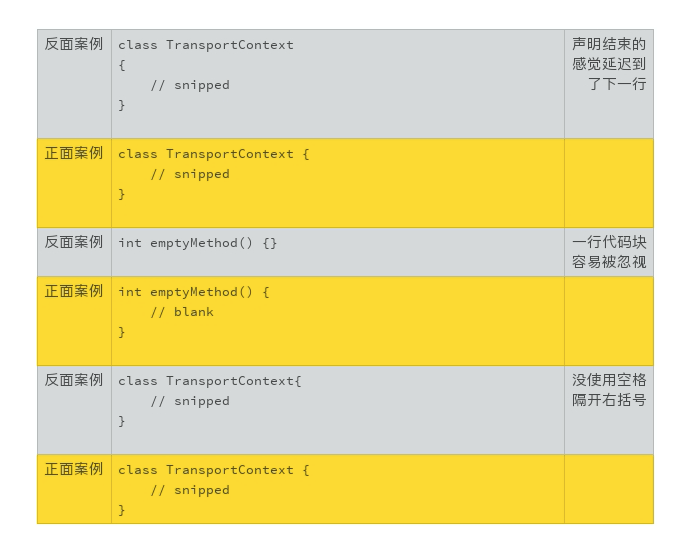代码规范
编程规范指的是针对特定编程语言约定的一系列规则,通常包含文件组织、缩进、注释、声明、语句、空格、命名约定、编程实践、编程原则和最佳实践等。
命名规范
- 空格:逻辑区分,用于同一行代码内部的信息分块
- 缩进:水平分割,用于表示代码块的级别
- 空行:垂直分割,用于分开同级别的不同代码块
一行一个行为
if (variable != null) variable.doSomething();// 分隔开两个行为if (variable != null) {variable.doSomething();}
基本的换行原则:
逗号后换行
String variable = anObject.getSomething(longExpressionOne,longExpressionTwo, longExpressionThree);
在操作符前换行
String varibale = longStringOne + longStringTwo+ longStringThree;
高级别的换行优先 ```typescript anObject.methodOne(parameterForMethodOne,
anObject.methodTwo(parameterForMethodTwo));
/ conventional indentation int runningMiles = runningSpeedOne * runningTimeOne
+ runningSpeedTwo * runningTimeTwo;
// confusing indentation
int runningMiles = runningSpeedOne
* runningTimeOne + runningSpeedTwo* runningTimeTwo;
- 新的换行与上一行同级别表达式的开头对齐```typescriptanObject.methodOne(parameterOne,parameterTwo,parameterTwo);
注释
注释是无奈的妥协:
紧靠的小括号
